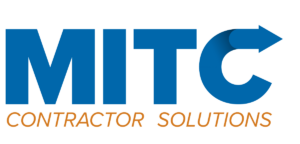According to LinkedIn’s 2015 Talent Trends Report, millennials will comprise half the workforce by the time 2020 rolls around. In less than 10 years, they will make up 75 percent of the workforce. Yet many companies, despite hiring and retention problems, have not considered the unique opportunities and problems of attracting and retaining this growing segment of the workforce. Who are millennials, and how do companies make themselves more attractive places for millennials to work?
Who Are Millennials?
There are no precise dates for when the millennial cohort starts or ends, but demographers typically agree that millennials were born between the early 1980s and the mid-1990s or early 2000s.
In reality, there are strong similarities between millennials and the generations that have preceded them: they want security and variety in their career, they want to be stretched and challenged, they want to work for a company of which they can be proud, and they have every intention of being loyal.
But there are many ways in which this growing proportion of the workforce is different. They have strong beliefs and expectations that extend to the workplace.
Where Millennials Want to Work
Data suggests millennials are driving a shift towards the public service sector. In 2010, the Journal of Business and Psychology published a study showing that this age group’s volunteer activity increased almost three times more than the volunteer activity of the overall population between 2007 and 2008. More recently, a 2014 Millennial Impact Report by consulting firm Achieve shows this generation has a high level of interest in public service. Out of the 1,514 employed millennials who were surveyed, 47 percent volunteered for a cause or nonprofit in the past month. The same study shows that 87 percent donated to a nonprofit organization in 2013.
This interest in public service bleeds into choice of work. In a recent Capital One Survey of millennials, 93 percent of respondents think it’s important that their career path that aligns with their personal values. Additionally, a 2013 survey by the National Society of High School Scholars (NSHSS) and a 2011 survey by Universum both show that they prefer to work for companies engaged in the betterment of society.
Use of Technology
 Millennials are using technology at unprecedented levels. According to a 2007 survey of students born between 1983-1992, almost all of them owned a computer and a mobile phone. In addition, 76 percent used instant messaging, 40 percent got most of their news from the TV, and 34 percent got most of their news from the internet. This means that, as a generation, millennials are comfortable with technology in all areas of life.
Millennials are using technology at unprecedented levels. According to a 2007 survey of students born between 1983-1992, almost all of them owned a computer and a mobile phone. In addition, 76 percent used instant messaging, 40 percent got most of their news from the TV, and 34 percent got most of their news from the internet. This means that, as a generation, millennials are comfortable with technology in all areas of life.
One of the most popular forms of media among millennials is social networking. In fact, a study published in the Elon Journal of Undergraduate Research in 2010 claimed that students who tried to quit social media showed the same withdrawal symptoms of a drug addict quitting a stimulant. Millennials are very active on social networking sites such as Facebook, Twitter, and Instagram. Social media can help them create a sense of belonging, make acquaintances, and remain connected with friends.
12 Tips to Attract Millennials to Your Company

Employers can take steps to address the needs and preferences of millennials. Consider these 12 tips to ensure your company is millennial-friendly:
- Focus job postings on the greater good. Putting your company’s work in the context of the global good will help emphasize your mission. Focus your job postings on their importance to the organization and society.
- Keep in touch. Keeping in touch with millennials is key, whether it’s during the recruiting process or while they’re employed with your organization. According to LinkedIn’s Talent Trends Report, 95 percent of millennials want to hear what you thought about them after the interview. Keep an open line of communication through email or text and provide post-interview feedback opportunities.
- Use technology. While older employees may be more comfortable with paper timesheets and schedules, millennials prefer to use technology whenever possible. To appeal to their preferences, post timesheets, schedules, documentation, benefits, and training online. Use automated digital alert systems like next shift reminders, review notifications, or birthday and anniversary greetings to connect with them. Businesses that appear unwilling to adopt technology will not be attractive places for millennials to work.
- Be a mentor. Offering guidance is a way to create trust with millennials. Send regular updates from the hiring manager to people in the application process. If your company has a mentorship program, call attention to that during the interview process.
- Document your procedures. For some, part of the learning process is to learn by doing — to figure out a process that others in the organization already know. But millennials have a different approach to problem solving. They don’t want to “go figure it out” if someone can tell them how to do it more quickly. Set aside the perception that 10 minutes of downloading information is laziness. Allowing them to take it forward will challenge and excite them.
- Make work fun and challenging. For millennials, work is supposed to be fun. Keep your employees engaged by giving them more responsibilities so they feel like they are moving somewhere. Millennials love change, so mix it up for them. Also keep in mind that a millennial’s time frame for completing goals is 18 months or less – anything beyond that may not motivate them.
- Provide frequent feedback. Millennials enjoy instant gratification, which means they’re always on point to deliver rapidly. As a manager, provide frequent feedback to fill this need.
- Promote collaboration and creativity. Both culture and space can contribute to collaboration. In a collaborative culture, managers may encourage staff members to propose new ways of doing things. A collaborative space may be smaller to make interaction easier (e.g. a cozy conference room versus a 20-person boardroom).
- Offer individual recognition. While teamwork is meaningful, millennials still want individual attribution. They will embrace the challenge of a single-person task that is part of a larger team project. When they are successful, call them out for a job well done.
- Create a work environment that allows a healthy work-life balance. This is one of the things this young generation desires most. Emphasize benefits like PTO. Improving the quality of life both in and out of the office — with social events, benefits, and flexible schedules — will appeal to people looking for more than just a salary.
- Avoid an excessively rigorous hiring process. Millennials are informal. Your company may be weeding out high-potential employees on a regular basis. To avoid this, try to loosen things up a bit. In place of the usual two- or three-round interviews, you can hold professional development classes, host open days, conduct informational sessions, or show potential candidates around the facilities. That way you can let the candidates decide for themselves whether they fit your company’s culture or not.




 Millennials are using technology at unprecedented levels.
Millennials are using technology at unprecedented levels. 